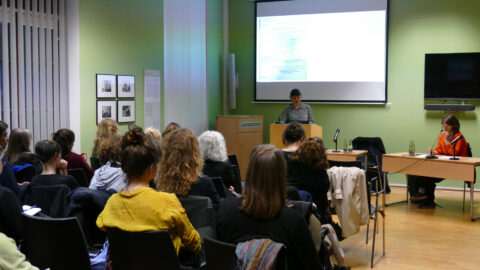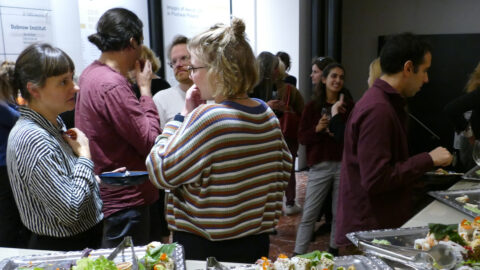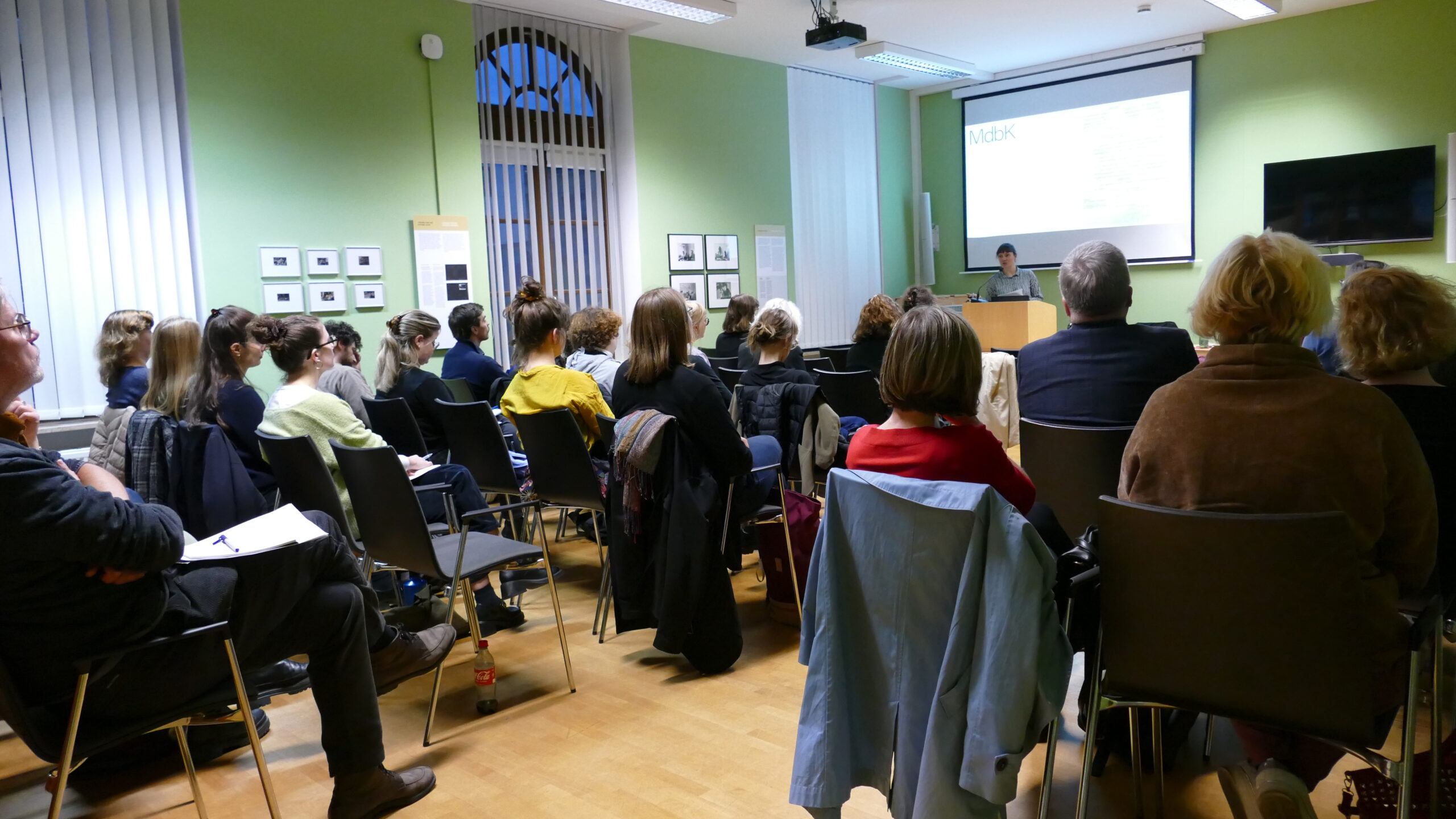On October 22nd and 23rd, the International Research Training Group (IRTG) Belongings: Jewish Material Culture in 20th Century Europe and Beyond convened to welcome the program’s second cohort. The “Welcome Days” opened in a hybrid format, with most participants meeting in person in Leipzig, while others joined remotely from Jerusalem.
The event began with welcoming remarks by the IRTG spokesperson, Yfaat Weiss, who expressed her gratitude to Leipzig University, the DFG and Landecker Foundation as well as to all those involved in and around the program for their great commitment. “Plans have changed repeatedly, and things have not unfolded as anticipated—but let us simply make the best of it,” Yfaat Weiss concluded.
The morning continued with a round of introductions from all doctoral researchers of the first and second cohort, the principal investigators (PIs), and the administrative team. Each doctoral participant had the opportunity to share insights into their current research, discuss how their focus may have evolved, and outline their goals for the coming years.

After the break, a “speed dating” session provided doctoral researchers and PIs the chance to engage in one-on-one discussions about their projects. Afterwards, the group visited the Dubnow Institute, where they enjoyed a guided tour of the exhibition The Determining Gaze. Images of Jewish Life in Postwar Poland, followed by a lecture by Dr. Ulrike Saß (Museum der bildenden Künste, Leipzig) titled Artwork, Memory, and Narrative: Which Story Is Being Told? Her presentation addressed the theory and practice of provenance research, especially as it is conducted in museums.
The first day concluded with a reception at the Dubnow Institute, where participants gathered in an informal setting that fostered exchange and closer acquaintance.

The second day was dedicated primarily to work within the cluster groups—Practice, Ownership, Text, Memory, and Stage. Within these groups, PIs and doctoral researchers engaged more in-depth discussions of their respective topics, explored intersections between their research interests, and addressed discipline-specific challenges as well as approaches to organizing research within the clusters.
In the afternoon, focus shifted to committee work and preparations for the continuation of the Welcome Days, scheduled for next March at the Jewish Museum in Berlin, as well as for the program of the upcoming academic year.
The Welcome Days set an inspiring tone for the new academic year, bringing together new and continuing doctoral researcher of the program with the PIs to share ideas for collaboration and strengthen connections within the group.
